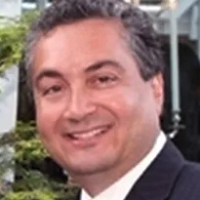New York County, NY Felony Lawyers
Sponsored Law Firm
-
 x
x

Click For More Info:
-
Marcia A Murphy Law Offices
1825 Park Ave Suite 1102 New York, NY 10035» view mapCriminal Defense Law A Law Firm You Can Trust
Let the Marcia A. Murphy Law Office handle all your criminal defense matters today!
800-949-5641
George A. Vomvolakis
✓ VERIFIEDCriminal, DUI-DWI, Felony, Misdemeanor
If you have been charged with a crime in New York City, Westchester or Long Island you need an attorney who is well versed in local laws and knows how... (more)
Nicholas Gregory Kaizer
✓ VERIFIEDFelony, Federal, White Collar Crime
Nicholas Kaizer is a nationally -recognized expert in criminal defense, who has appeared in numerous courts around the country. He has lectured attorn... (more)
Michael F. Bachner
Litigation, Felony, Criminal, Securities
Status: In Good Standing Licensed: 43 Years
FREE CONSULTATION
CONTACTPeter Marc Frankel
Misdemeanor, Felony, DUI-DWI, Criminal
Status: In Good Standing Licensed: 35 Years
 Marcia Murphy Biondo New York, NY
Marcia Murphy Biondo New York, NY Practice AreasExpertise
Practice AreasExpertise



